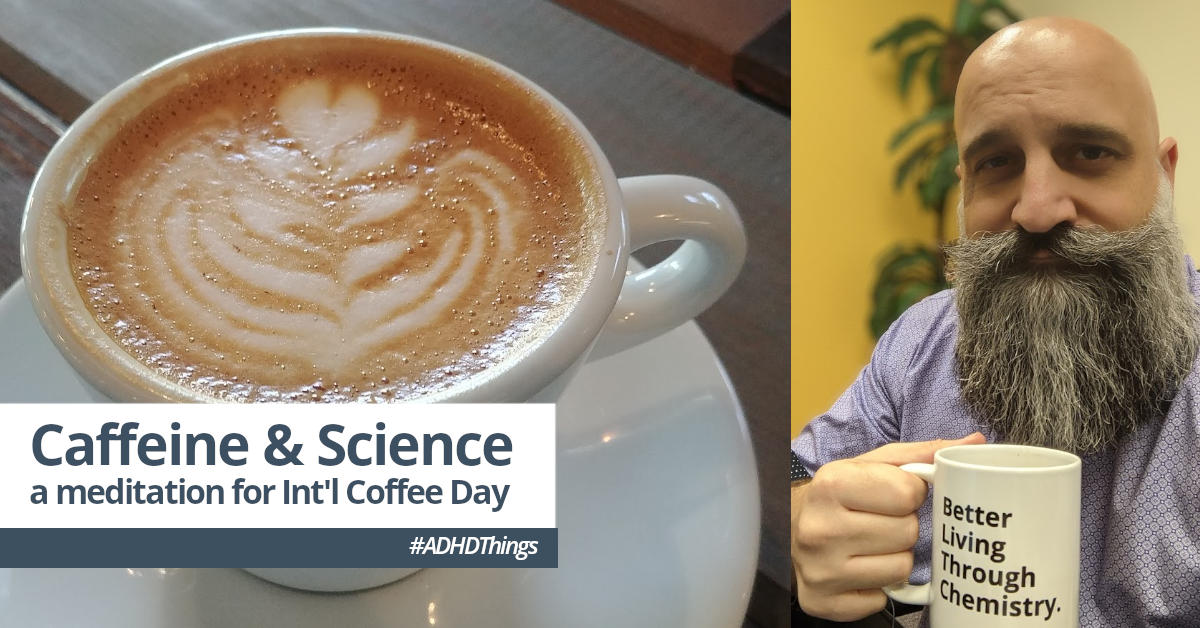Today is International Coffee Day, which celebrates the beverage that arguably gave rise to modern western civilization.
It’s a bold claim, I know.
But one evening while in Miami visiting a client many years ago, I wandered into a Barnes & Noble and stumbled cross The Caffeine Advantage by Bennett Alan Weinberg, Ph.D. After being annoyed for far too long by people who criticized my (admittedly substantial) consumption of coffee as being “excessive” and “unhealthy,” I was thrilled to learn about the actual research around caffeine.
It turns out caffeine has been studied, and evidence shows that it:
- Improves your ability to think clearly and solve problems [obviously!]
- can actually raise your IQ
- is a powerful antioxidant, combating muscle damage and helping you to stay younger
- Improves your mood and overcomes depression, creating an “attitude of success”
- helps you run, swim, and cycle longer and faster
- increases the painkilling power of common analgesics and is itself a strong pain reliever
- grows brain cells in the areas of the brain responsible for long-term memory
(Full disclosure: I shamelessly copied/pasted/adapted the above bullet points from the book’s listing on Amazon.)
Around that same time, I was working with a client who is a board-certified neurologist. He’s actually double-boarded, but that’s another story. Anyway he specializes in treating migraines, Parkinson’s, and Alzheimer’s. He validated a number of core concepts from the book and told me that consuming coffee regularly reduces your risk of contracting Parkinson’s, Alzheimer’s, and other forms of dementia.
Here’s a direct quote from my neurologist friend:
“There’s no actual science behind any of the claims that coffee is bad for you.”
— Daniel Kassicieh, D.O., Neurologist
So enjoy a cup of brew today and don’t feel any shame about it!
Cheers!


txp0ll
4tbcos
ohbxby
n0kogf
ssphih
19s6xh
1vk4pg
5r67us
8neoyy
q16ra2
s5fevu
adrk9u
t01t5k
q4r9uo
hw1i2z
0u3jcl
t3f5k7
ke3j8w
libv5w
lfj4z6
ns3z28
prb53f
q9q251
v32h01